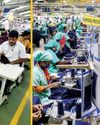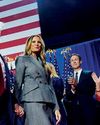Indias armed forces, the third largest in the world, have the eighth largest defence budget. Indigenously developed weapons have contributed to the country's arsenal.

India focused on defence innovations after it achieved independence. The Defence Research and Development Organisation (DRDO), which is the flagship organisation responsible for defence innovations was formed in 1958. Before that, the Defence Science Organisation aimed to provide scientific and technological support to the Indian Armed Force. DRDO currently operates through a network of around 47 laboratories and establishments located nationwide and are manned by over 34,000 personnel, including 16,000 scientific technical persons.
In the context of developing new indigenous technologies, India is working on its research and development (R&D) and getting a robust technology transfer system. The ‘Make in India’ initiative must boost indigenous initiatives. A brief account of various defence innovations in India is given below.
1947-1960
The military hardware of the erstwhile British controlled Indian armed forces was divided between the newly created states of India and Pakistan. After independence, the Indian government adopted a five-year planning approach that also focused on promotion of indigenous technologies. During this period, the Indian armed forces were involved in a number of significant military operations, notably, the Indo-Pakistani War of 1947 and the Operation Polo. From the 1950s, numerous contracts with foreign firms enabled the production and development of vehicles and guns, battle tanks, infantry combat vehicles, fighter and trainer aircrafts, and frigates and submarines. Such development was carried out by the state-run agencies that collaborated with foreign firms and carried out the bulk of this production in the Indian ordinance factories and defence public sector undertakings.
1961-1980
Arjun Tank Project
This story is from the October 16 - 31, 2018 edition of BUSINESS ECONOMICS.
Start your 7-day Magzter GOLD free trial to access thousands of curated premium stories, and 9,000+ magazines and newspapers.
Already a subscriber ? Sign In
This story is from the October 16 - 31, 2018 edition of BUSINESS ECONOMICS.
Start your 7-day Magzter GOLD free trial to access thousands of curated premium stories, and 9,000+ magazines and newspapers.
Already a subscriber? Sign In

Bank of Baroda, Kolkata Zone organised Mega Kisan Melas in West Bengal
Bank of Baroda (BOB) organised Mega Kisan Mela at Konkalitala in Birbhum District of West Bengal on November 18, 2024 as a part of the 7th Edition of the Baroda Kisan Pakhwada (BKP).

Time-Bound Disposal of Cases to Expedite the Delivery of Justice and affordabe by all in India
The delay in the disposal of cases in Indian courts remains a significant hurdle to the nation's progress.

Dev Deepawali: A grand celebration of light, spirituality, and culture in Varanasi
The holy city of Varanasi, often regarded as India's spiritual and cultural heart, came alive with the splendor of Dev Deepawali on the sacred day of Kartik Purnima.

The life of Job 'Ye judge not the judgment of God' - Jesus Christ
The Holy Bible reveals through the life of Job how the Lord tests the righteous and that faith helps one to overcome life's adversities.

India has the highest potential for the garment industry, only a conducive government policy is required.
India's textile industry is poised for remarkable growth, with expectations to double its contribution to the GDP within the next six to seven years.

Global Public Debt may be worse than it appears, warns IMF
Global Public Debt Set to Exceed $100 Trillion, Warns IMF

The economic consequences of Trump's Presidency: A global perspective
One of the key economic factors contributing to the Democrats' loss in the US elections was the significant rise in inflation, which was initially triggered by the COVID-19 pandemic and exacerbated by the Russia-Ukraine war.

Challenges and Successes in West Bengal's Education Sector: A Comprehensive Overview
The education system in West Bengal, particularly in districts, villages, slums, and government institutions, reflects a blend of progress and ongoing challenges.

What India can expect from Trump's return
I may be too early to predict how Donald Trump's second term as president will impact the global oil market.

Stocks Surge Following Donald Trump's Election as 47th President of the USA
Stocks soared following the election of Donald Trump as the 47th President of the United States. Investors anticipated that the Information Technology (IT) sector would benefit from lower corporate taxes under the Republican regime, with IT stocks leading the rally.